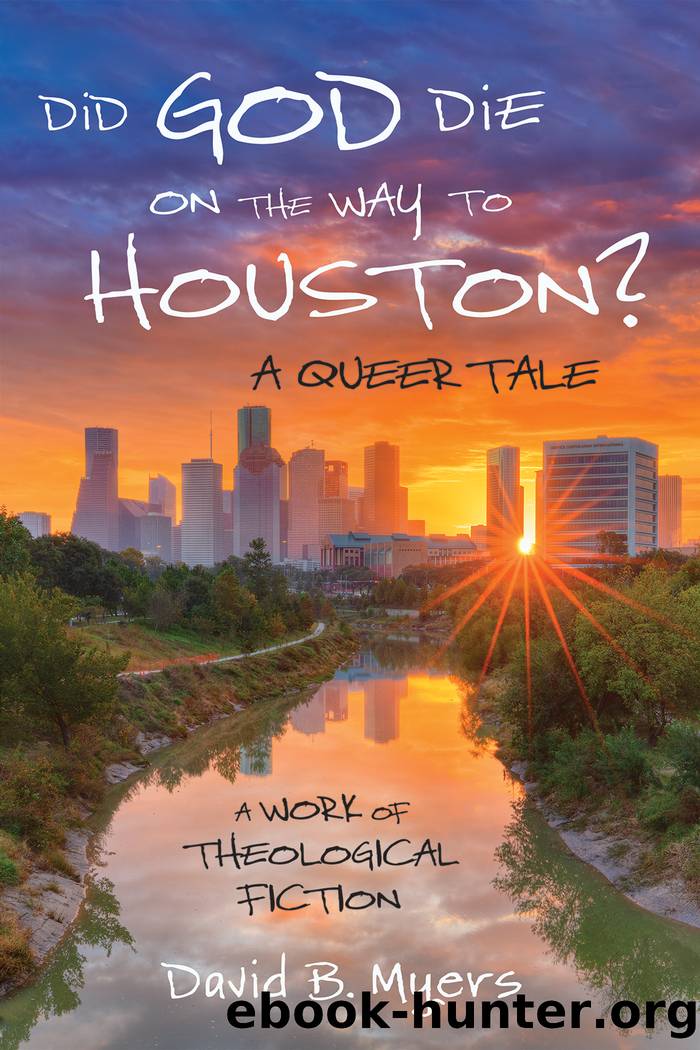Did God Die on the Way to Houston? a Queer Tale by David B. Myers

Author:David B. Myers [Myers, David B.]
Language: eng
Format: epub
ISBN: 9781725259522
Publisher: Wipf and Stock Publishers
Published: 2020-07-24T19:38:48+00:00
10
What about the View that Scripture Is Godâs Word?
There is no sense in God writing a book for me and then making me in such a way that I cannot believe his book.
âRobert Green Ingersoll, Why I Am an Agnostic
Are you saying that God didnât communicate the divine will in any of the scriptures of the worldâs great religions?
There are many scriptures purporting to be Godâs will, Godâs words, Godâs commandments. All of these so-called revelations are human creations. But some texts coincidentally express Godâs actual intentions for humankind, such as the call to love others as you should love yourself, welcome the stranger, free those unjustly held captive, feed the hungry, protect the vulnerable, impartially apply the law, etc. There is, however, much that is wrong in the scriptures of many religions, including texts purporting to be divine that actually reveal what contradicts Godâs will for humankind.
It is even reasonable to ask whether on balance the major world religions have brought the world more darkness than light. When I saw in Torah, Leviticus chapter 19, the command to love neighbor and the stranger as self, I wanted to shout: âYes thatâs a beautiful moral law for all to live by.â But I also saw in the Torah, in the same book, Leviticus (chapter 25), my Jewish friend, something that was mistakenly accepted as divine law: namely that Israelites are permitted to own non-Israelites permanently and pass them on to their children, and that Israelites may treat these non-Israelite slaves as ruthlessly as Israelites were treated in Egypt. I wanted to shout: âNo, not so!â Slavery was never Godâs will. There are scriptural apologists who say God was only giving these human beings what they could handle at that historical time. I donât buy that. If those who originally received the Torah had seen in it an explicit divine condemnation of all slavery, do you think they would have ignored this, especially if the God of this text had threatened them with awful consequences for disobedience as He so often did? And even if these recently liberated slaves defied Godâs prohibition of all slaveryâparadoxically wanting others to suffer as they did in EgyptâGod would at least be on record condemning all slavery as an unholy practice. After all, the biblical God is on record condemning the enslavement of Israelites and calling for their liberation. Why in the Torah is permanent slavery wrong for Jews but not for all other communities?
You will get no argument from me. This is a question I ask out loud every Passover.
The failure of both the Bible and the Quran to absolutely condemn slavery led to the legitimation of an institution that brought enormous pain and degradation to those who were literally owned as one owns a piece of property. If the Bible (both Jewish and Christian versions) and the Quran had really been authored by God, they would have contained an unambiguous prohibition of slavery. Of course, many Jews, Christians, and Muslims have argued that the condemnation of slavery is implicit in their scriptures.
Download
This site does not store any files on its server. We only index and link to content provided by other sites. Please contact the content providers to delete copyright contents if any and email us, we'll remove relevant links or contents immediately.
The Thirst by Nesbo Jo(6932)
120 Days of Sodom by Marquis de Sade(3262)
Angels in America by Tony Kushner(2652)
Into the Wild by Jon Krakauer(2628)
A Ladder to the Sky by John Boyne(2411)
The Goodmans by Clare Ashton(2349)
The Femme Playlist & I Cannot Lie to the Stars That Made Me by Catherine Hernandez(2281)
The Patrick Melrose Novels: Never Mind, Bad News, Some Hope, and Mother's Milk by Edward St. Aubyn(2191)
Alpha Awakened (Waking the Dragons Book 1) by Susi Hawke & Piper Scott(2116)
Shawn by Catherine Lievens(2106)
A Chance in Time by Naomi Lance(2091)
I Capture the Castle by Dodie Smith(2034)
Iggy by Catherine Lievens(1993)
Well Traveled by Mills Margaret & Ward Tedy(1981)
Rabbit by Catherine Lievens(1950)
Neriah by Catherine Lievens(1927)
The history of Tom Jones, a foundling by Henry Fielding(1845)
His Fragile Heart by Jamie Lynn Miller(1844)
Unlawfully Claimed by Kian Rhodes(1783)
